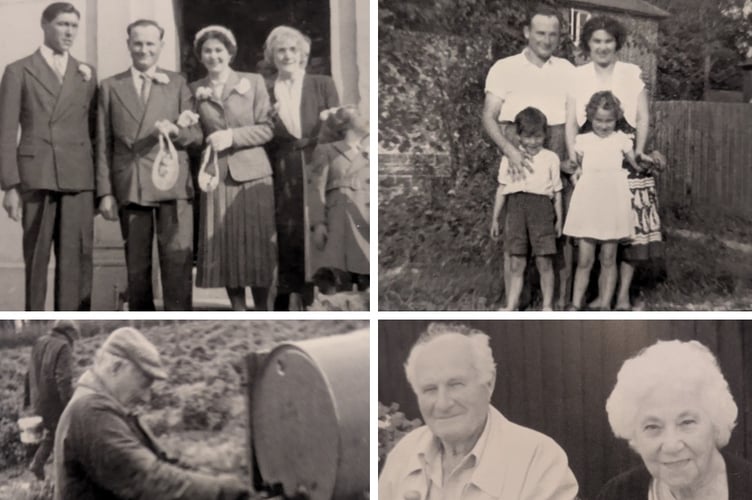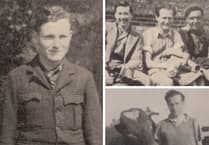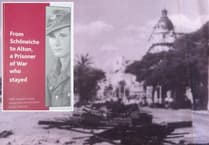From working on his family farm in East Germany to fighting with the Wehrmacht in a brief, but bloody encounter with the advancing US army in northern France, and becoming a prisoner-of-war in rural Hampshire, Willi Gerlach's journey to Alton was an eventful one.
But we begin the third and final instalment of our telling of the remarkable story of Corporal Gerlach with a new beginning for the old soldier, when on October 29, 1947, after years of captivity, Willi was granted an identity card in Petersfield, marking the start of a new chapter in his life.
This allowed Willi some freedom to work and travel, but his movements were still heavily restricted. He was required to remain within the Alton area and be home by 10pm every night.
He also welcomed occasional visits by the police to check up on him. But despite these constraints, Willi maintained a positive attitude, recalling his interactions with local police with fondness.
He cheerfully recalled: "I was quite happy, I was well known by the coppers!"
Willi signed a contract to work as a cowman at Greenmount Farm in Shalden, finding accommodation with the Norkett family. He kept a low profile, mindful of the lingering tensions from the war.
But as he settled into his new life, Willi began to integrate into the community, gradually shedding his POW identity. He saved up to buy a bicycle, replaced his uniform with new clothes, and took on additional gardening jobs to supplement his income.
In late 1948, Willi had the opportunity to return to Germany to be officially demobbed. He found post-war Germany in a dire state and was relieved to return to Britain, which had become his new home.
Willi's life at Greenmount Farm continued smoothly, and by 1951, he rented a smallholding in Shalden, where he began keeping chickens and pigs. His involvement in the local community deepened as he joined the local darts team, learned to play whist, and organised outings for the elderly.
In 1952, Willi's status as a British resident was officially confirmed, ending his regular appearances in court for police check-ins.
That same year, Greenmount Farm was sold, bringing new challenges. Willi adapted to the changes, moving into a flat on the estate and continuing to work under the new owner, Major Drysdale.
In 1954, Willi's personal life took another significant turn when he met Cicely ('Cissy') at a dance in Alton. Despite an awkward first encounter, the two married in 1955, and Willi embraced his role as a stepfather to Cissy's three children.
The couple initially lived in Whitedown before moving to the School House in Shalden. Willi worked tirelessly at Greenmount Farm, which had transformed into a major poultry business, while Cissy contributed by working at the Swan Hotel in Alton. In 1957, Willi was naturalised as a British citizen, a milestone in his journey of integration.
Willi's time at Greenmount Farm ended in the early 1960s after a downturn in the chicken trade and bouts of swine flu. He eventually found work at Chawton Park Farm, and the family moved to a new cottage closer to Alton.
However, this job was short-lived, and Willi transitioned to working at Courages Brewery in Turk Street, where he remained until 1980, advancing to the position of foreman.
Even after leaving the brewery, Willi stayed connected to farming, working at Hartley Park Farm on the Selborne Road for another 20 years until his retirement in 2001 at the age of 76. Throughout these years, he also maintained a strong connection to the land through his allotments, where he kept pigs and chickens.
Willi and Cissy, who continued working into their later years, passed away some years ago.
Their legacy, however, lives on in the Alton community, where their lives are documented in Ian Fleming’s book, From Schoneiche to Alton, a prisoner of war who stayed, available to loan from Alton Library.



Comments
This article has no comments yet. Be the first to leave a comment.